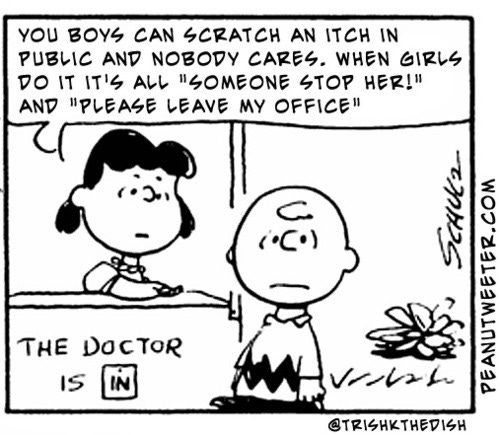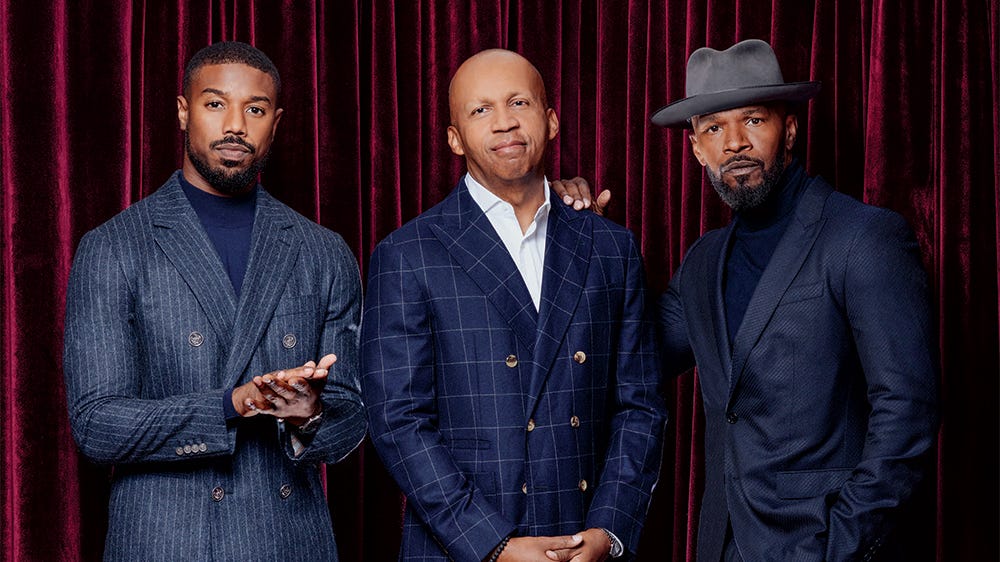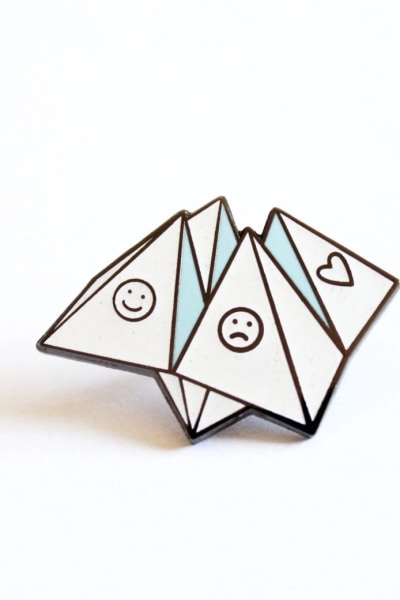Proximity
A gift for you, and a tension for me.
Friends!
I made you a New Year’s Gift! A while back, my friend and personal-shopper Christie suggested that I set up a parenting-advice booth ala Lucy in Charlie Brown, or create a magic eight ball with parenting fortunes in it, some silly way to acknowledge the “healthy tension” (thanks Margaret for that term) between the fact that I both think parenting advice is mostly insufferable and insensitive and unhelpful and the fact that, when friends come to me with challenges with their kids, I really do have something to offer up, usually one of the same half-dozen acorns that I’ve squirreled away after years of consuming this stuff and watching how it plays out in actual families.

Enter, the No-Cost No-Fail* Parenting-Advice Fortune Teller. Ask it a question about your parenting struggles, and get a reasonable, relatable response. Download it, print it out, fold it, and play to your hearts content! Throw away most of your parenting books, or if you don’t have any, congratulate yourself for not making more garbage in this trash world. But do make this garbage - this garbage is worth it! The links work in the pdf if you want to read more. Share it with friends or bring it to the playground! And if you use it, let me know how it goes!!!
P.S. I decided not to turn this into some offer you unlock when you enroll in something. But if you like it, or this newsletter, please consider signing up for a paid subscription this year to support my writing and making avante-garde parenting-advice art projects like this one.
A brief preamble: At dinner with a friend last week, I heard one of the people in the couple next to us raise a glass and, I shit you not, toast with these hesitant words: “New year, same….relationship??” It is apparently a new year, but as far as I can tell, I have the same old relationship to writing and time and productivity as I did on December 31st. So, I’ll be getting you Momspreading posts when the spirit moves me, when I have something good to say, or when I feel it has just been too long, and not on any regular schedule like “weekly” or “bi-weekly” or whatever other tools of the oppressors are used to describe something frequent and predictable. Thank you. I love you. Read on…
I grew up in a city, albeit a relatively small one. I didn’t get my driver’s license until I was 20. I had friends who lived in vastly different economic circumstances. I knew my neighbors. I went to the local public schools. Sometimes my teachers were extraordinary. Sometimes they were, um, not. I went to a lot of free, public or non-profit-funded after school and summer programs, many of which were rad. We had something called the “Peace and Justice Corps.” We had a big National Coming Out Day all-school assembly, at which my theater class often performed really, really cool skits. I knew what to do if, say, a man ran towards me and a friend on the sidewalk at night, with his dick out (yell and run). What I’m saying is, I loved my city. I never wanted to leave it. I wanted to raise my kids there, so that they, too, could experience this vast expanse of humanity, not have the option of shying away from community, and possess street smarts, whether those streets had dicks out in them or not.
When I moved to Oakland in 2009, to go to graduate school, I was overjoyed. I hated Los Angeles, its city comprised of strung-together suburbs. Sure it had its glory, but I could never feel comfortable there. I remember, often, walking a mile from our apartment to some destination, usually frozen-yogurt-related, and not passing a single other person who was not getting in or out of a car. I used to wander around the outdoor mall that I could walk to by cutting through an empty Christmas Tree lot, and pretend that it was a downtown. But I never ran into a friend there, never had a clerk at the American Girl Doll store greet me by name or remember my usual order. I attempted to take the bus to work, an hour trip compared to the twenty-minute drive, and discovered that people only took the bus in LA because they had absolutely no other option.
Oakland was not that. I took the bus lots of places, befriended many shop owners and workers, ran into everyone I knew at the ice cream shop (fro yo as a cultural institution has died since my move north). Over the years, I have met many, many of our neighbors. I’ve written about the cohousing community I discovered in my backyard — that is unusual. But it wasn’t just them. The tattoo artist across the street, with permanent tears coming down his face, gave us a rocker for our first baby, and, years later, gave me my first tattoo. The teenager down the block sat on our couch and knit while our kids slept, and then my husband helped her write her college essays. The guy who lives behind the band rehearsal space, who assured us when someone was repeatedly climbing the fence that connected his spot with my son’s bedroom walls to steal his tools, that he was putting up extra cameras and flood lights and that he owned a bat and would protect us, and who tossed a princess jewelry set over from his garage roof for my daughter last weekend, and who frequently offers me weed, and in turn I have supported him through family psychological crises.
Oakland is, depending on who you ask, one of the top three most diverse cities in this country. There is much, much to be said about the segregation in Oakland, and the gentrification. Things are, according to many, precarious here. Development has displaced poor residents, rather than helping them experience the benefits of this development. I am not the possessor of the truth about Oakland, I know. And yet, I experience this place as a beautiful community, varied in many ways and committed to celebrating and preserving that variety. I have never, even in the city I grew up in, seen such strife and so many examples of human beings at their most loving and creative. It is both.
I have never understood why people say city-dwellers are mean or New Yorkers are too jaded to be kind. I have never seen such kindness as I have in cities, where living on top of one another means that there is no room or often time to consider whether helping someone is a sound idea or not, you just do it. It is a matter of civic propriety, often. The man who bought our donuts for us at the corner shop when we realized we didn’t have cash, the people who have swept up the glass from my many smashed car windows, and the people for whom I have swept. So so many Oaklanders have done kind and unnecessary things for me and my family, or for others in my presence, in the overlapping places of this city. And my favorite thing about being helped by a city-dweller is, they don’t make a big stink about it.
The writer Eve Tushnet, in her outstanding essay, “O Blessed Bus!”, writes about the bus as a microcosm of city life:
Nobody loves the bus because nobody chooses the bus, not if they have other options. The bus rattles and lurches. The bus is cheap and so the bus is crowded, and the bus is probably late. (Amtrak is also probably late, but not cheap.) The seats are small. On an intercity bus there’s no café car, and there sure isn’t any quiet car. The bus isn’t a respite. It takes everything about your life that you wouldn’t have chosen and crams it right into your lap.
And this is how the bus brings people together. When I interviewed the urbanist writer Addison Del Mastro for an article in America magazine, he speculated that perhaps “what we think of as good urbanism is just an accident of having been poor.” When we have a choice, people usually choose privacy, control, and comfort—and then we’re shocked when we wind up lonely. We put up “privacy fences,” and then complain about how nobody knows their neighbors anymore. But communal bonds have always been tightened by necessity.
When you are confronted with other people, constantly, you kind of have two choices. You can treat them as part of your life, or not. Sometimes one moves in and out of these two spaces, but I have seen people let down their guards swiftly and mercifully when needed to assist others. I find this, rather than jadedness and turning away, to be the norm in my city. I love that my city teaches this lesson to my children too, without my even having to make it explicit, though we often talk about what a “mitzvah” is, and how you want to walk through the world looking for opportunities to quietly perform them.
The other day, my mother introduced me to this concept, “proximity,” a social psychology term popularized by “good kind of lawyer” Brian Stevenson, who has already achieved one of my lifetime goals (not the Macarthur Genius award, the having a super hot person play you in a movie). Stevenson says:
“Proximity has taught me some basic and humbling truths, including this vital lesson: Each of us is more than the worst thing we’ve ever done. My work with the poor and the incarcerated has persuaded me that the opposite of poverty is not wealth; the opposite of poverty is justice. Finally, I’ve come to believe that the true measure of our commitment to justice, the character of our society, our commitment to the rule of law, fairness, and equality cannot be measured by how we treat the rich, the powerful, the privileged, and the respected among us. The true measure of our character is how we treat the poor, the disfavored, the accused, the incarcerated, and the condemned.”

This arrangement can be difficult, painful even, and in places like Oakland it is becoming almost unbearably so. When we first moved here, there were many unhoused folks who cycled through our neighborhood. Often, I knew them by name. I knew Eric’s order from Walgreen’s (Ritz crackers, and often feminine hygiene products for his wife), and Sen’s preferred ice cream flavor (Haagen-Dazs Caramel Cone). They had conversations with shopkeepers and residents. I don’t kid myself that this was a good situation. That for one second Eric thought that the reality of living in an old car parked on 45th street wasn’t so bad because some lady got him crackers once a week. I knew then, and know now, that in some way it wasn’t just tragic that they lived on the streets and I lived in a comfortable apartment, but also related. That one was in some way responsible for another, even if no one had presented me with the choice to be comfortable and have others suffer, I had made it. We had proximity then, certainly. We talked with affection, even to our baby who was too young to understand, about all of our neighbors — housed and unhoused.
Often, one interaction, one relationship, or even one moment, a walk to get donuts (yes, I eat A LOT of donuts), will contain all the multitudes of city living piled on top of one another. It is enough to give you whiplash. When the unhoused son of a local woman ran out onto Telegraph avenue on a Friday night, high and naked, I stopped traffic along with someone I had never met before, who lived on top of the head shop on the corner. It took us just seconds to communicate about this, and to enlist some passing teenagers to drag cones from the sidewalk into the intersection. I ran and got his mother before the cops came. Months later, when he died, we brought her flowers. This year she gave my children the best Halloween bags I’ve ever seen, opening her door with a huge grin on her face. It almost destroyed me.
These days, I sometimes feel that I would like to be less proximate to the reality I live in. There are more and more people on the street, and they are not usually able to have a conversation. There is one man, Jeff, who for years hung out around the corner and had rich, lucid talks with us, in-between rants about the government, who we got supplies for, who now seems to live in a newly-cropped up settlement across Telegraph, and is now almost unrecognizable and unable to make eye contact. It is devastating to be in proximity to Jeff, this person I knew who is now so ravaged by neglect, and to the many, many people who wander around our neighborhood screaming, sleeping, sometimes shitting on the sidewalk on my walk home from dropping my daughter at preschool. And yet, they are here, even more than before, they are our neighbors. This is our world, our country, our state, our city. Why would we hide from it?
A few weeks ago, we came home from a very expensive meal (whiplash) not far from our house to cop cars on our corner and caution tape in our lawn. There had been a drive-by shooting across the street, a dozen shots fired. I ran into the house like I have never run anywhere and found my children, alive and very much awake (not because they were scared, because they are shit at bedtime). Our babysitter, a long time city dweller, had told the kids it was fireworks. I thought of all the families in our city who had already experienced this fear, experience it often, found something different when they came home. I thought, after that, that surely I would want to leave, as I often think about doing when I travel somewhere else and return to my city and my neighborhood and am almost punched in the gut by the proximity. But I didn’t. I don’t.
Last weekend there was a break in the rain, and I walked my four-year-old to her buddy’s house a few blocks away, which in this neighborhood is sometimes enough distance to feel like another world. When she grows up, she told me, she and this friend are going to get married and have two girls, or at least one girl and one boy, but they cannot decide whether they will live in our apartment or her house. I tried to imagine our neighborhood, this city, this planet in 20 or 30 years and simply couldn’t conjure anything. When we passed by an especially good puddle, my daughter went back to jump in it. “Hold on mama,” she said, “I just want to get the joy through me.”
I am in awe, every day, of how much joy flows through us in our little corner of the world. I think I will go for a walk, and see what proximity has in store for me today, and make some pathetically insignificant attempt to alleviate someone’s suffering, and drop off some lentil soup to the woman who runs the bakery, who has given us many free cookies and referred to me the other day as “family,” because this is our home, and we live here together.
Also, this:
-Depending on where you are and how much news you consume, you may be aware that California is underwater. There are somewhat darkly-comic sides to this (Californians having to wear closed-toed shoes, Regina Hall justifiably losing it at the Golden Globes because she had to explain to the audience that Kevin Costner was sheltering in place in the tony town of Santa Barbara), but shit is really bad for a lot of people. Forty families of children in the Oakland public schools have been displaced, and if you’re feeling generous, please donate a few bucks to the Oakland Schools Emergency Fund, whose existence is yet another example of how caring for others in your community is inconvenient yet essential. Thank you!
Oh, and check out this piece I wrote for Romper last week on Bluey, representation in children’s media, and ADHD. God bless the editor who lets you refer to Beverly Cleary as “the OG of everyday children’s stories.”






I love this, I love you, and I love Caramel Cone Haagen Dazs.
That said, there really was one great intervention suggested by your mom when a certain person was having a hard time with her parents divorce: I got up an extra hour early, so after the meltdowns, she knew there was a LOT of time for candyland. Fewer melts meant more candyland. ( Is there a more boring game?)
Worked so well that by high school we didn't need to do it. :- )